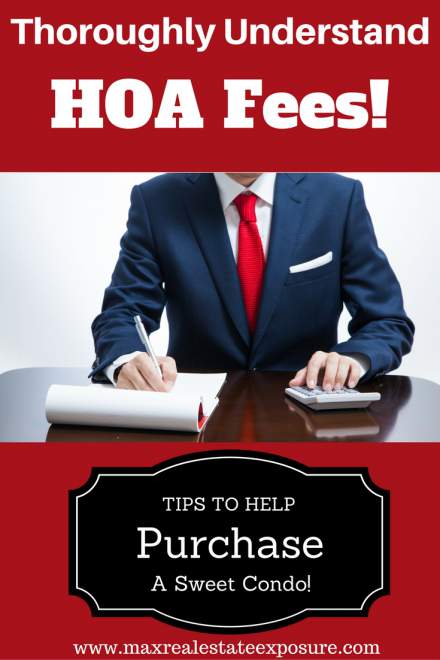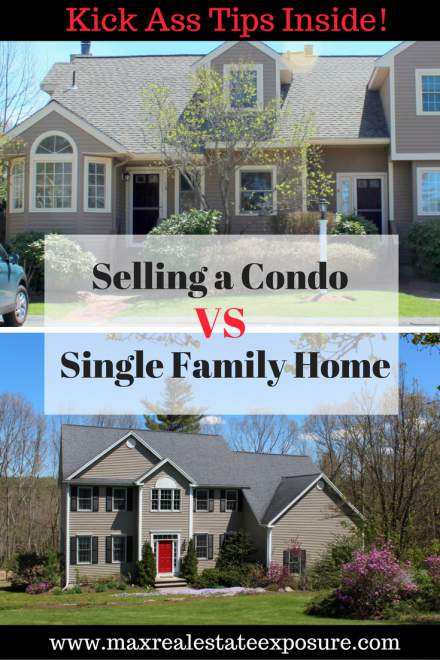 How Does Selling a Condo Differ From a House?
How Does Selling a Condo Differ From a House?
Did you know that selling a condo can differ from selling a house?
While condos and single-family homes may have a lot of similarities, there are fundamental differences that you must account for when selling each type of property.
Selling a condo vs. selling a single-family home can be very different! Failing to adjust your sales strategy based on the property type will increase the difficulty of your sale – something you want to avoid.
The following information will give you ideas on what to focus on when selling a condo or a home.
Your Realtor will be able to go into greater detail based on your individual property, but the better informed you are, the more you can help with the process.
Things to Remember When Selling A Condo
Let’s examine some of the essential considerations when selling a condo.
1. Condo Buyers Look For Affordability, Convenience, and Location.
There are exceptions, but in most cases, condo buyers try to find something relatively affordable, convenient, in a good location, or above.
Many times condos are a cheaper alternative to a single family home, making them ideal for first-time buyers. Even if a condo is high-end, it offers certain conveniences you can’t get in a full-size home.
The condominium association maintains the grounds, and the smaller footprint of the condos means it may be closer to things in the area that people want to be near – like shopping, entertainment, etc.
Depending on where you are selling, the most crucial aspect of your condo may be its zip code. Keep this in mind before ultimately making a decision. Buyers will analyze the pros and cons of both condos and homes.
Understanding these facts and features is essential to know how your Realtor should craft the marketing towards a particular buyer.
Know why buyers will look at your condo before you start advertising it. You want to be able to tailor your offering to the kind of customer you will be dealing with. For example, if you sell 55 and over housing, you should be marketing the features that a senior of retirement age would find desirable.
2. The HOA is Part of The Deal.
The quality of your HOA is a significant factor in how desirable your condo is to buyers. When the HOA fails to keep the grounds tidy, is always running out of money, or is consistently unpleasant to deal with, the buyer only has to ask your neighbors to learn these facts.
Suppose the buyer needs a loan to purchase the condo. In that case, the lender will need to verify that the HOA meets specific criteria, like the financial records of the HOA, the percentage of owner-occupied units, and any pending lawsuits. When there are too many issues with the HOA, the lender may deny the loan.
When you’re selling, a buyer will likely check on the financial reserves and whether there are any upcoming special assessments. Sellers should be prepared to answer questions and deal with any of the flaws of the neighborhood.
Remember, the purpose of a homeowners association is to ensure the neighborhood runs smoothly. Unfortunately, that does not always happen, as a condo association is only as good as everyone involved.
3. HOA Fees Can Vary Considerably.
 The cost of your HOA fees may seem reasonable to you, but they may come as a shock – good or bad – to prospective buyers. Some HOAs charge a hefty monthly fee, enough to almost double the mortgage cost, while others are much more reasonable.
The cost of your HOA fees may seem reasonable to you, but they may come as a shock – good or bad – to prospective buyers. Some HOAs charge a hefty monthly fee, enough to almost double the mortgage cost, while others are much more reasonable.
If your HOA fees are not too high, it should be easy to sell to buyers, but if they are significant, you need to have a good explanation for why they are so high when you talk to buyers.
Make sure you look at the best tips for selling a condominium, offering timeless advice to sell your condo in the shortest amount of time for the most money possible.
4. Financing Can Be More Challenging For Condo Buyers
It is possible that selling a condo in your complex could be more difficult if it has not been run well financially.
A significant percentage of home buyers will also want to use an FHA loan to purchase due to its low down payment requirement of 3.5 percent.
Unfortunately, some condominium projects are not FHA-approved. FHA condo approval is necessary if you want to open your sale to as many buyers as possible.
Some condo associations are short-sighted about maintaining FHA approval. If your neighborhood is one of them, you should inquire about getting it approved before your sale.
Selling A Single-Family Home – Things To Remember
1. Buyers Are Often Looking For Space, Privacy, and Turnkey.
While there tends to be a lot more variety in what single-family home buyers are in the market for, there are some common goals many buyers share. No one buys a condo expecting a certain amount of separation from the neighbors, but plenty of single-family home buyers do.
Many of these buyers are also looking for a room to expand in the home, like extra bedrooms for children they have or plan on having. They may search for a home with a particular-sized backyard or a garage.
Selling something for a reasonable price requires knowing why buyers will want it. You must clarify what your home offers and stress your property’s strengths to potential buyers.
It’s essential to remember that most buyers today prefer turnkey homes.
One of the things many competent Realtors do is provide a list of improvements made to your home. A significant selling feature of any property is the creation of major updates and enhancements.
Getting your home ready for the market is critical. Spending the time to stage before selling is crucial.
2. Your HOA is Necessary But Less Likely to be a Deal Breaker.
While HOAs can be annoying when you own a single-family home, the organization managing your community is less likely to get in the way of a home purchase if a buyer wants your property.
Specific buyers do not want to live in an HOA if they can help it. They can be uncomfortable with an overly controlling association if they have lived with one in the past.
However, the HOA is not responsible for the home’s main structure, so a lender is unlikely to deny a loan based on the HOA.
The one exception where some buyers may object to living in a particular neighborhood is when there are overbearing restrictive covenants.
3. You Are Responsible For Curb Appeal.
When selling a single-family home, you cannot rely on the HOA to ensure excellent curb appeal. It will be your responsibility to ensure that the exterior of your home looks fantastic and draws buyers in.
Landscaping, lawn care, and such will all need to look in tip-top shape if you want potential customers to park and walk through your door to see what you offer.
Your home’s curb appeal is at the top of the list of improvements that will raise your home’s value.
4. Your Home’s Condition is Vital.
 It doesn’t matter if you sell a home or a condo – the condition is essential! There are generational differences in today’s buyers. Now more than ever, buyers want turnkey homes with very little work to be done.
It doesn’t matter if you sell a home or a condo – the condition is essential! There are generational differences in today’s buyers. Now more than ever, buyers want turnkey homes with very little work to be done.
In today’s fast-paced society, many buyers don’t have the time or inclination for repairs and improvements.
Given this, sellers must understand the most important things to repair before selling a home. Getting your house in order before it hits the market can make a big difference.
Regarding brass tacks, buyers will sacrifice to move into a home that does not look like a time suck or money dump.
One tremendous tip is knowing how to remove wallpaper when selling a home. It dates a house, and most buyers don’t want it.
Even if you think you have excellent taste in wallpaper, a buyer is unlikely to share that same belief. Instead, remove the wallpaper and paint these rooms a light neutral color.
Remember selling a home is about appealing to the masses, not what you like.
5. Not All Renovations Are Money Makers; Some Will Lose Money.
Single-family homeowners are often sold the idea by television and contractors that renovations are the key to a better selling price, but this is not always true.
While you may be motivated to pour money into sprucing up your home for buyers, be careful to do your research before you spend thousands of dollars on something that may not add enough value to your home to be worthwhile.
Believe it or not, there are so-called improvements that could lower the value of your home! Don’t make the mistake of thinking that all improvements add significant value to your home. That is not the case!
Talk to your real estate agent about what, if any, renovations you need to do to your home before your sale. The last thing you want is to spend a lot of money on an additional renovation or one where you lose money in the long term.
Bad renovations can happen whether you are selling a home or a condo.
Final Thoughts and Advice on Selling Condos vs. Houses
Whether you are selling a condo or a home, having a top-producing real estate agent in your corner makes sense. The vast majority of the time, it does not cost any additional money to hire the best local Realtor possible.
Of course, understanding how to pick a real estate agent is essential. Never choose a Realtor based on the opinion of the value of your home.
A real estate agent should always be chosen based on their skills. Some of the worst real estate agents inflate values to get a seller’s business. This is the kiss of death.
Always look over the comparative market analysis provided by agents through the eyes of a buyer. The real estate comps provided should make sense. Otherwise, you will end up making a pricing mistake.
Overpriced homes don’t ever sell for top dollar. They languish on the market, and it’s too late when you reduce your price. You have already become a victim of a horrible pricing mistake!
It is prudent always to interview multiple real estate agents and listen carefully to any creative real estate marketing to sell your home. An exceptional Realtor will go out of their way to ensure their marketing is outstanding.
Additional Helpful Real Estate and Financial Advice
- Make your house more appealing to home buyers – see some helpful tips on making your house more saleable via Anita Clark.
- Smart ideas when selling a home – Imagine Your House provides excellent advice for home sellers.
- Best home selling tips – see how to maximize your home’s sale price via Maximum Real Estate Exposure.
Use these additional articles to increase the odds your home or condo will be priced right, looking its best, and be ready for a successful sale!
About the Author: The above Real Estate information on selling a condo vs. selling a single-family home was provided by Bill Gassett, a Nationally recognized leader in his field. Bill can be reached via email at billgassett@remaxexec.com or by phone at 508-625-0191. Bill has helped people move in and out of Metrowest towns for the last 37+ Years.
Are you thinking of selling your home? I am passionate about Real Estate and love sharing my marketing expertise!
I service Real Estate sales in the following Metrowest MA towns: Ashland, Bellingham, Douglas, Framingham, Franklin, Grafton, Holliston, Hopkinton, Hopedale, Medway, Mendon, Milford, Millbury, Millville, Northborough, Northbridge, Shrewsbury, Southborough, Sutton, Wayland, Westborough, Whitinsville, Worcester, Upton, and Uxbridge MA.

